What is the difference between femoral and inguinal hernia?
Inguinal hernia and femoral hernia can arise in both males and females. And in some cases, it is quite difficult to distinguish between them as they occur around the same region.
The key difference between femoral and inguinal hernia is the part from where the intestine bulges out. In the case of an inguinal hernia, the intestine enters the abdominal cavity through an opening in the inguinal canal. It is the passage that allows the spermatic cord and the testicle to descend. Normally, the inguinal canal closes after birth but in some cases, weak spots in the muscle wall are created that causes problems later in life. Inguinal hernias mostly occur in men due to this reason.
Femoral hernias are also found in the groin region but they arise due to different reasons. The femoral artery and vein pass through the femoral canal, which is an opening between the abdominal floor and the upper leg (thighs). If there is a weak spot in the femoral canal, the intestine may bulge out and cause problems. Femoral hernias are more common in women as they have a different bone structure around the pelvis region.
Both types of hernias have similar symptoms and have the potential to cause serious complications. Therefore, if you notice a bulge anywhere in your body, it is crucial that you get it checked and seek proper treatment.
Is inguinal hernia treatment possible without surgery?
A hernia is a condition that doesn’t go away on its own, and neither can be repaired without intervention.
In the best-case scenario, hernia treatment can be delayed if the bulge is not large and there are no other symptoms present. At this stage, the doctor will recommend that the patient manages the occasional pain with the help of a hernia belt or truss that will prevent the organ from entering the abdominal cavity.
This way, the patient can reduce the symptoms and also stop/delay the progression of the hernia. Ultimately, to ensure that inguinal hernia doesn’t lead to life-threatening complications, surgical repair will be required.
Contact Pristyn Care to Consult with Hernia Specialists in Delhi and Get Advanced Treatment
If you have been diagnosed with an inguinal hernia and want to resolve the condition effectively, you can contact the best hernia surgeons in Delhi by calling Pristyn Care. We house an esteemed team of general surgeons who specialize in open surgery as well as laparoscopic surgery for inguinal hernia repair. You can schedule an appointment with them and discuss the treatment options in detail.
The doctor will diagnose the problem accurately and identify which technique would be safer for the patient. Usually, most patients, as well as doctors, prefer using the laparoscopic technique for inguinal hernia repair as it is a minimally invasive procedure with faster recovery, fewer risks, and several other benefits.
To learn more about the advanced treatment, give us a call and schedule your free consultation with the best hernia doctors in Delhi.
Open/Laparoscopic Inguinal Hernia Repair Recovery Tips
Whether the surgeon uses the open or laparoscopic technique to treat an inguinal hernia, the recovery starts right after surgery when you are sent back to your room after the procedure. Immediately after the procedure, you might feel a little bit tired and dizzy due to the after-effects of anesthesia. The effects will go away after some time and you will feel better.
Usually, you will be discharged on the same day and once you reach home, follow the tips below for a quick and smooth recovery-
- Do not push your body to its limits. Take proper rest in the first few days and avoid moving unnecessarily.
- In the first few days, you might not have a proper bowel movement. Make sure that you eat properly and have a bowel movement as soon as possible.
- Eating healthy and drinking plenty of water is essential to avoid constipation and promote faster recovery.
- Let pain be your guide to move around and resume basic activities like walking, climbing stairs, etc.
- The doctor will instruct how to change the bandages. Do it as directed.
- Keep the wound dry and clean to prevent infection and other post-surgery complications.
- Avoid taking showers or sitting in hot tubs or swimming pools. Keep water away from the incisions until the doctor gives you permission.
- Do not drive until the doctor approves and takes the prescribed medications as directed.
- Avoid lifting heavyweights, including babies, as it can put pressure on the abdomen.
- Do not exercise at all until the wound heals completely. Abstain from sexual activities too.
Visit the doctor if you have a high fever, persistent pain, swelling around the wound, or if you haven’t had bowel movements for 3 days.
How to prevent inguinal hernia?
It is important to understand that congenital inguinal hernia cannot be prevented. But if there are no congenital defects in the body, it is possible to reduce the chances of developing an inguinal hernia. Follow the tips below-
- Maintain a healthy weight by eating a balanced diet and exercising regularly. The diet will improve the overall health, and exercise will strengthen the abdominal muscles to minimize the chances of protrusion due to weakness.
- The quality of food should also be improved. Focus on a fiber-rich diet that promotes faster healing and repairs the hole in the abdominal wall.
- Avoid pushing the body to its limit by lifting excessive weights, exercising longer than necessary, or performing the same strenuous activities on a regular basis.
- Get regular body checkups to identify if there are any health problems that can increase the risk of developing conditions like an inguinal hernia.
Visit a doctor timely if you notice a bulge in the abdomen or surrounding region and get it treated.







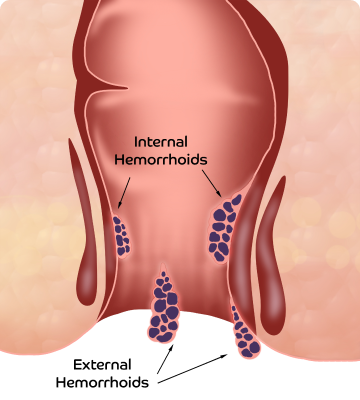
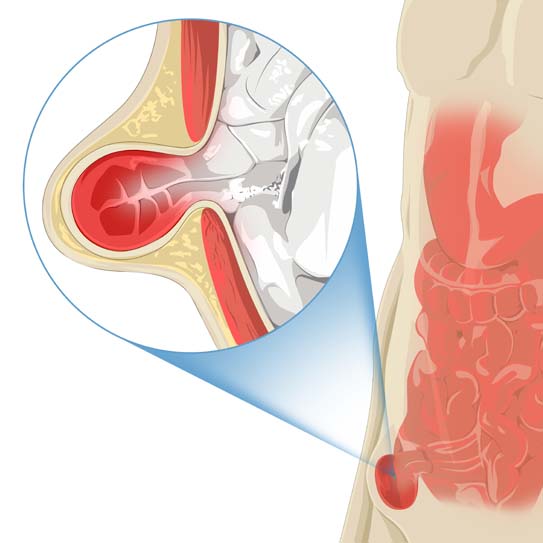
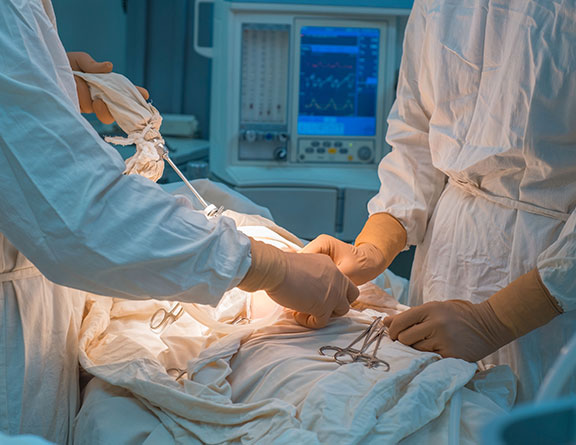

Pristyncare%20Clinic.webp)
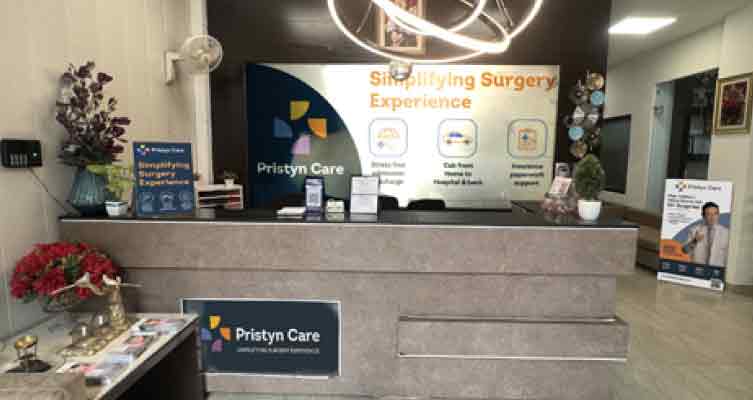
Pristyncare%20Clinic.webp)
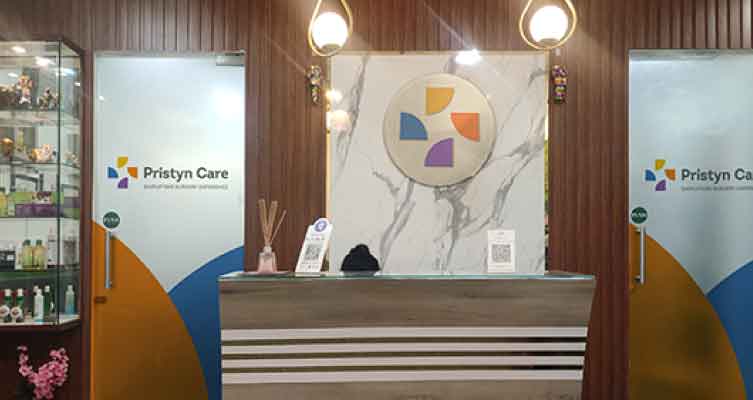
Pristyncare%20Clinic.webp)
Pristyncare%20Clinic.webp)
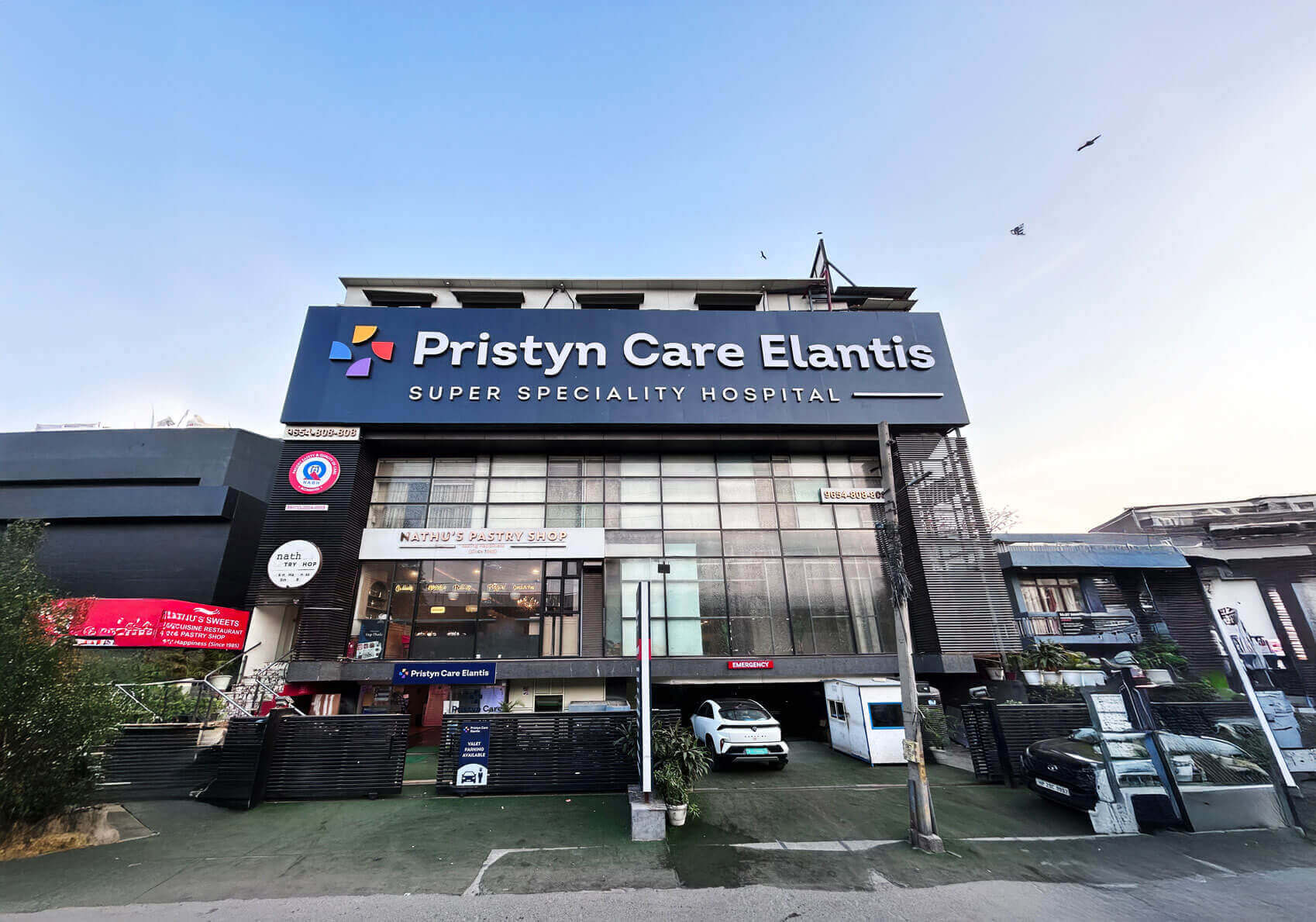
 4.8/5
4.8/5
 NABH
NABH.svg)









